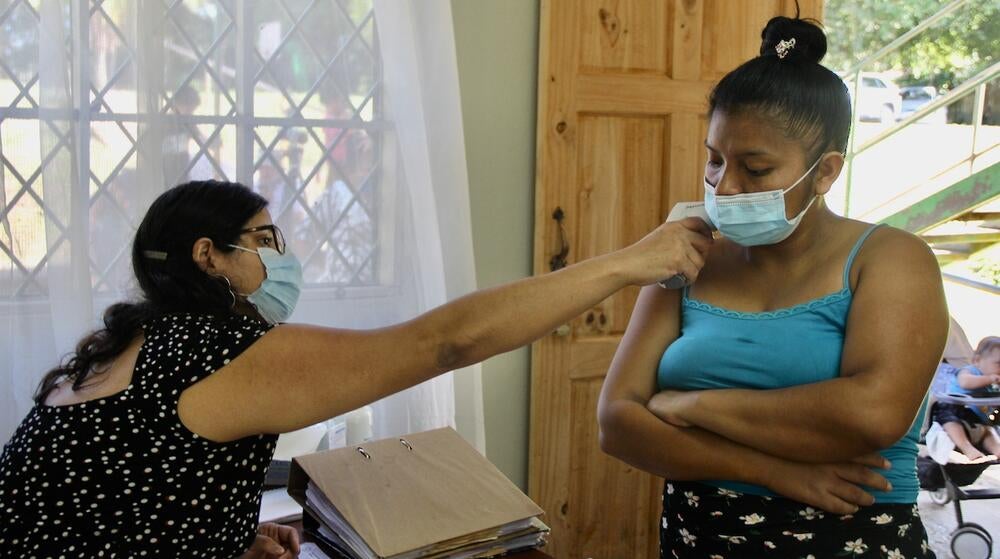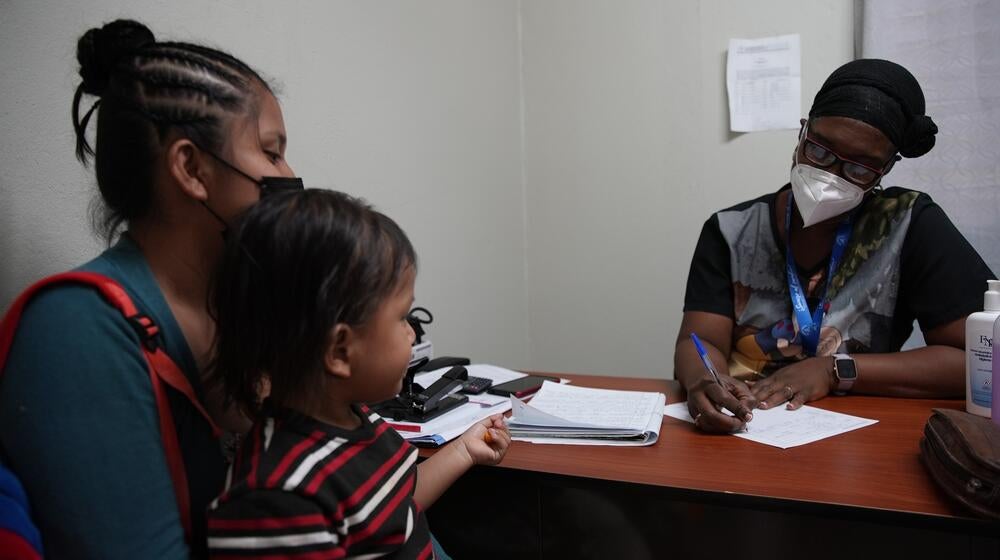News
“They have to fight”: People of African descent face deadly, systemic racism and sexism in health sectors across the Americas, UNFPA reports
- 12 July 2023
News
TALAMANCA, Costa Rica/UNITED NATIONS, New York – “When I’m working in the gynaecology area and I see an Afrodescendent person, I feel concerned. Because I know that they wouldn’t come in unless they were feeling very bad.”
Siannie Palmer is an obstetrician from the Caribbean coast of Costa Rica. Working at a clinic in La Palma, together with UNFPA she also pays monthly visits to primarily indigenous women who wouldn’t otherwise have access to health services – including for maternal, obstetric and newborn emergencies.
“Sometimes my (Africodescent) patients say they were left waiting longer, although the health professional thinks the waiting period is the same,” she explained. “But not with me, I’m a face they know – I’m Afro just like them.”
Her testimony echoes the findings of a new report by UNFPA, the United Nations sexual and reproductive health agency, which reveals that women and girls of African descent across the Americas face systematic racism and sexism in the health sector – discrimination that is even proving deadly for all too many.
The abuse stretches from verbal to physical and includes denial of quality care, coercive or unconsented medical procedures, lack of confidentiality, refusal of pain medication and violations of privacy.
Such entrenched discrimination breeds mistrust, and mistreatment only validates it: As one of Ms. Palmer’s patients said, “If the doctor asks me questions in the hallway or if they don't listen to what I have to say, I won't go back to their office.”

A growing gulf in health care
The crisis of maternal deaths has intensified over the last decade: In Latin America and the Caribbean, rates rose by 15 per cent between 2016 and 2020, while in North America they increased by 17 per cent. The main driving forces are stark inequalities and social exclusion, with Afrodescendent women and girls particularly hard hit.
The harshest contrast for Afrodescendent women and girls is in the United States, where they are three times more likely to die during or shortly after childbirth than non-Afrodescendent women, while in Suriname the rate is 2.5 times higher, and 1.6 times higher in Brazil and Colombia.
To improve access to fair and safe health care, Ms. Palmer holds discussions between medical professionals and community members. “If you come as a professional that knows everything and won't listen, people put on armour to defend themselves – they have to fight,” she said.
But she added that health staff are often unaware of the biases they bring to the clinic.
“It can be small gestures: The doctor might not even realize that a certain way of saying or asking things is discriminatory, and that’s why (women) don’t go to the consultation… all those things that happened have left ghosts,” she said.
Higher maternal deaths among people of African descent are often blamed on poor lifestyle choices, hereditary predispositions or failure to seek treatment in time. But the report refutes these mistaken beliefs, instead pointing to patterns of abuse and neglect that start as early as medical education and stretch into policymaking and health-service delivery.
Fundamentally, these are deaths that were for the large part preventable had the women received the proper standard of care and treatment they were entitled to.

An unseen crisis?
UNFPA Executive Director Dr. Natalia Kanem said, “Many of these women and girls are the descendants of African victims of the Transatlantic slave trade. Sadly, the scourge of racism continues to this day”.
Yet it’s a scourge that in the health sector is mostly unseen due to a lack of data collection: Only 11 out of 35 countries in the Americas collect maternal health numbers broken down by race, and just one third of the 32 national health plans identified people of African descent as experiencing barriers to health care.
UNFPA programmes to advance the right to health care for people of African descent are supporting data collection to empower stakeholders in making informed decisions on crucial issues.
UNFPA is also striving to improve access to and quality of health service delivery for women and girls of African descent in the Americas: In Colombia for example, no maternal deaths were reported in 2022 in an area of Afro-Colombian and indigenous populations after the launch of a pioneering community-based midwifery programme.
And in Peru, UNFPA helped collaborate with the government to launch a project measuring maternal mortality and inequalities in several Afrodescendent communities, using ethnicity-based data.
But much more needs to be done to ensure access to quality health care for women of African descent, and to end the abuse they have historically been subjected to.
“If you treat people with a desire to help, they will open up, talk about things that are private... They need warmth and quality care,” said Ms. Palmer. “It’s not a matter of financial resources, but rather feeling that the professional genuinely wants to help.”
Dr. Kanem explained, "Too often, Afrodescendent women and girls are abused and mistreated, their needs are not taken seriously, and their families are shattered by the preventable death of a loved one during childbirth. Justice and equality will only be possible when our healthcare systems see these women and provide them with respectful, compassionate care."